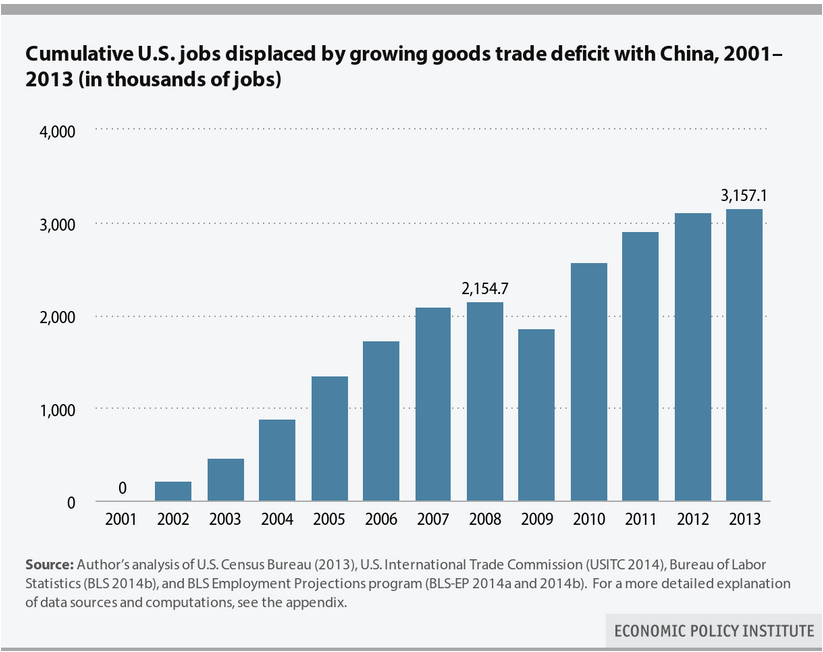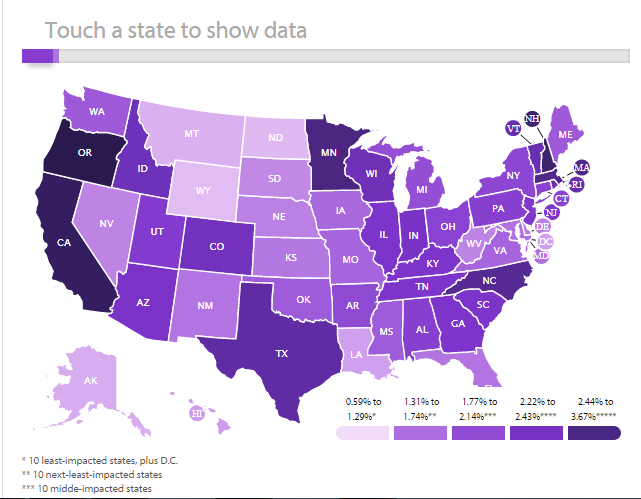Over 3.2 million jobs have been lost nationwide due to trade with China.
Growth in the U.S. goods trade deficit with China between 2001 and 2013 eliminated or displaced 55,900 jobs in Washington state, according to China Trade, Outsourcing and Jobs, a new study from Economic Policy Institute Director of Trade and Manufacturing Policy Research Robert E. Scott and research assistant Will Kimball. Trade with China has caused job loss in all 50 states and the District of Columbia, including all but one congressional district.
Washington’s job losses equate to 1.8 percent of total state employment, displacing close to two out of every 100 jobs. They include jobs in our home IT sector with 26,700 jobs lost in computer component and semi-conductor manufacturing.
“We have 25 years of experience with NAFTA-style trade policies. Our economy lost millions of manufacturing jobs and entire industries to China and other countries,” said Stan Sorscher, Labor Representative for SPEEA Professional Aerospace Union. “China’s policies are designed to strengthen their manufacturing industries, while our policies are designed for short-term profit. Trade policies should reflect our values as a country, and our current policies fail that test by a wide margin.”
One of our biggest growth industries for trade and export is scrap and second-hand goods, the exports of which have increased seven-fold since 2001. This is the canary in the coal mine when considering the deindustrialization of the American economy.
Supporters of China’s entry into the World Trade Organization in 2001 claimed that the move would create jobs and increase U.S. exports to China. However, China has continued to engage in unfair trade practices—such as currency manipulation, illegal industry subsidies, tariff and non-tariff barriers to imports, dumping, and the suppression of wages and labor rights—which have limited the growth of U.S. exports. Meanwhile, growth in outsourcing by multinational companies has created a flood of Chinese imports into the United States, leading to rapidly growing trade deficits and corresponding job loss. U.S. trade deficits with China have nearly quadrupled since 2001, reaching $324.2 billion in 2013.
“Currency manipulation by China is the single biggest contributor to growing U.S. trade deficits and the resulting job loss,” said Scott. “It’s time for Congress and the president to enact tough new policies to end currency manipulation by China and more than a dozen other nations that have adopted similar policies. Congress should pass pending legislation that would allow the Commerce Department to penalize currency manipulators, and the president should use existing authority to tax or offset currency manipulation by foreign governments.”
The impact of the trade deficit with China is not limited to direct job losses. Competition with low-wage countries has driven down wages and reduced bargaining power for millions of workers throughout the U.S. economy.
More To Read
May 19, 2025
A year of reflections, a path forward
Read EOI Executive Director's 2025 Changemaker Dinner speech
March 24, 2025
Remembering former Washington State House Speaker Frank Chopp
Rep. Chopp was Washington state’s longest-serving Speaker of the House
February 11, 2025
The rising cost of health care is unsustainable and out of control
We have solutions that put people over profits


